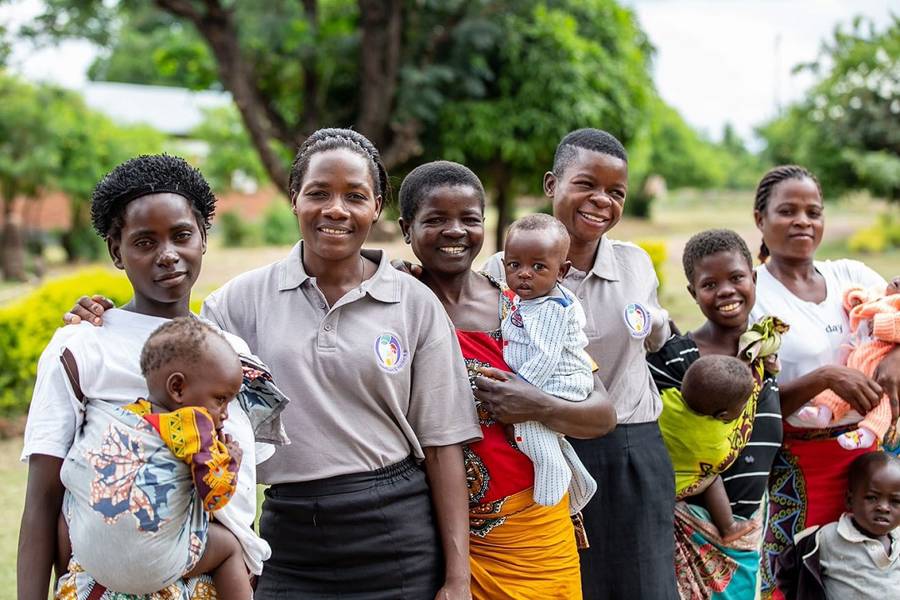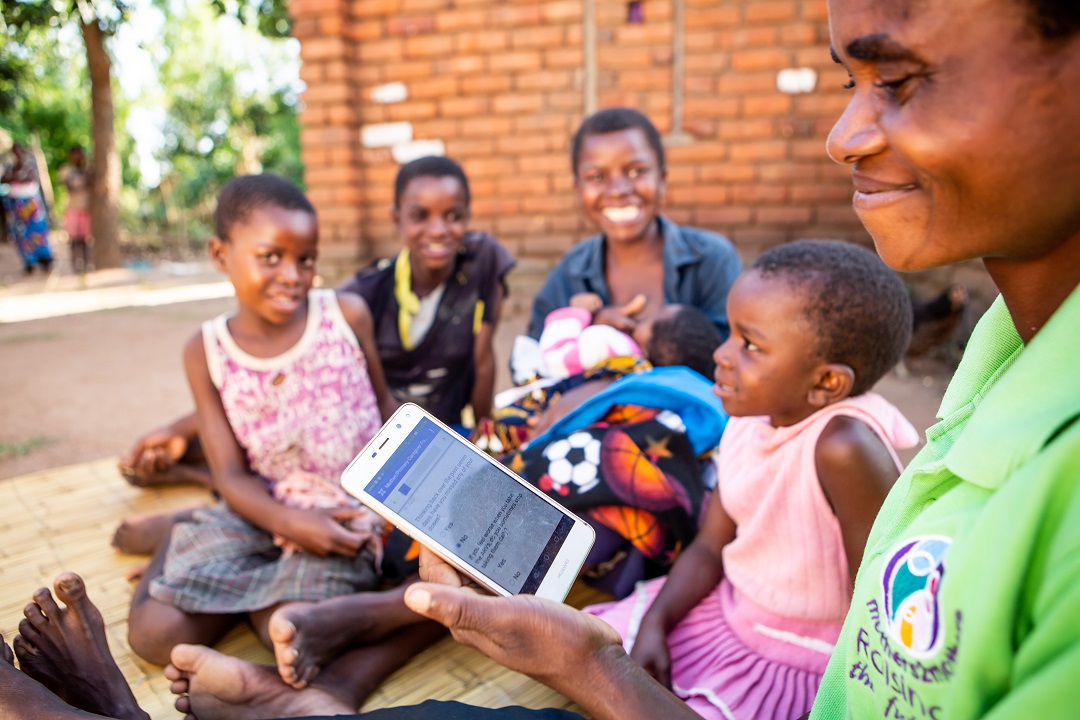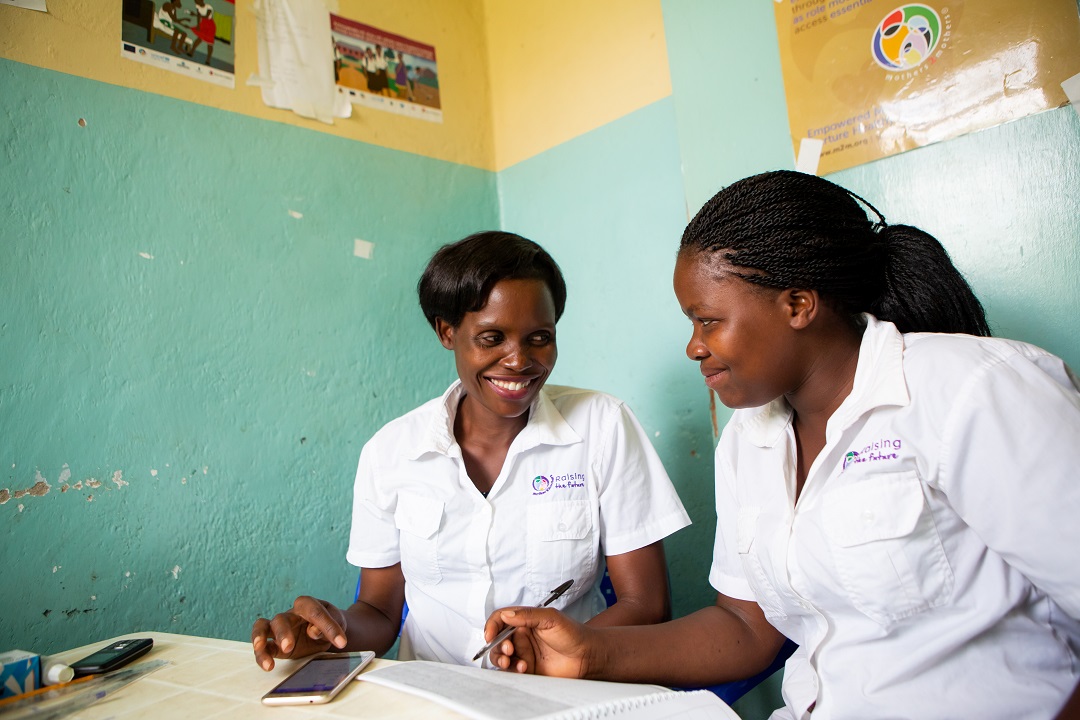
Health Mentorship by Mothers, for Mothers
The Mentor Mothers at mothers2mothers (m2m) are dedicated to getting through to clients because even a single missed connection can have life-altering consequences for whole families. The organization works in ten countries across Africa to eliminate HIV infection in children, reduce child and maternal mortality, promote youth development and gender equality, overcome stigma, and support the health and welfare of families.
Mentor Mothers, women living with HIV employed and trained by m2m as frontline community health workers, are the keystone of m2m’s model. As peers with local knowledge and shared experience, they assist clients in their region in accessing essential medical care and other vital services.
Illnesses related to AIDS are the number-one cause of death globally for women of reproductive age, making elimination of HIV transmission a critical priority. In 2019 m2m clients saw a mother-to-child HIV transmission rate of 1.9%, well below the UN’s international transmission rate benchmark for “virtual elimination” of 5%. In the same year, HIV-negative mothers enrolled in m2m who were pregnant or breastfeeding were 45 times less likely to acquire HIV than peers across sub-Saharan Africa. All told, the organization has reached more than 11 million women and children under two since its founding in 2001.
The pandemic has thrown a wrench in public health efforts around the world by organizations like m2m. In one survey this summer, for instance, 85% of programs working to address HIV infection worldwide reported disruption to delivery of their services. The potential outcomes of this widespread disruption are dire. A group from the World Health Organization and UNAIDS estimated in May that a six-month interruption in services could lead new HIV infections in children to in parts of the world where m2m is working.
With support from the Stavros Niarchos Foundation (SNF), m2m rapidly developed a digital “Virtual Mentor Mother” platform in over 30 languages to continue delivering its services safely across nine countries it works in. It’s an adaptation that preserves the essence of the program: the peer-to-peer connection between Mentor Mothers and clients. The grant, part of SNF’s global COVID-19 relief initiative, also supported the organization in procuring personal protective equipment for frontline staff and creating an emergency fund to cover contingencies like COVID-19 testing needs.
A previous grant from SNF supported the Mentor Mothers program in Malawi. The Foundation also supports other programs that harness the power of peer-to-peer connection to help improve health outcomes, including for young people from Zambia to Chicago.
The model implemented by m2m is about services that improve the wellbeing of clients, but it’s also about the wellbeing of the people who deliver those services. The organization directly employs almost 1,700 women living with HIV—it has employed more than 11,000 in total since 2001—offering greater financial security to a population often excluded from economic opportunity.
Community Mentor Mother Promise James sums up the impact of her involvement simply, as “mothers2mothers has changed my life.”

